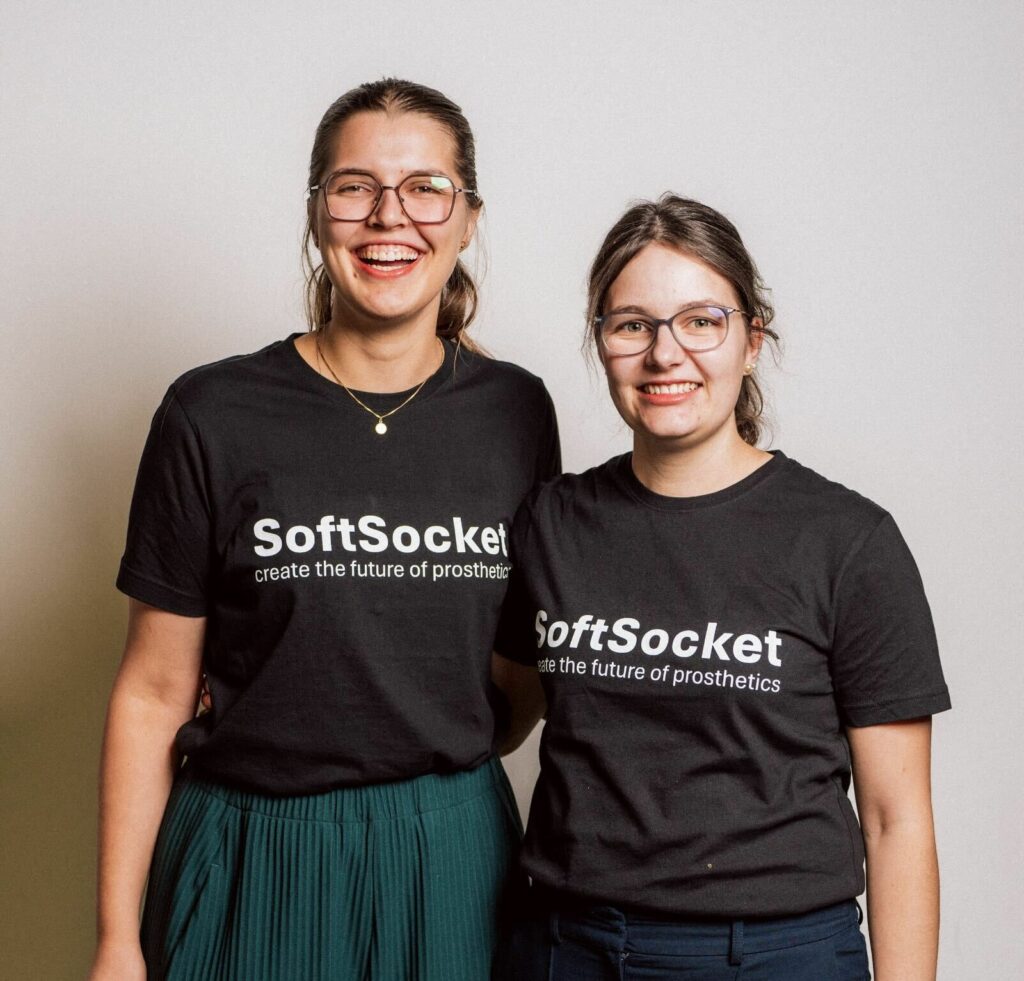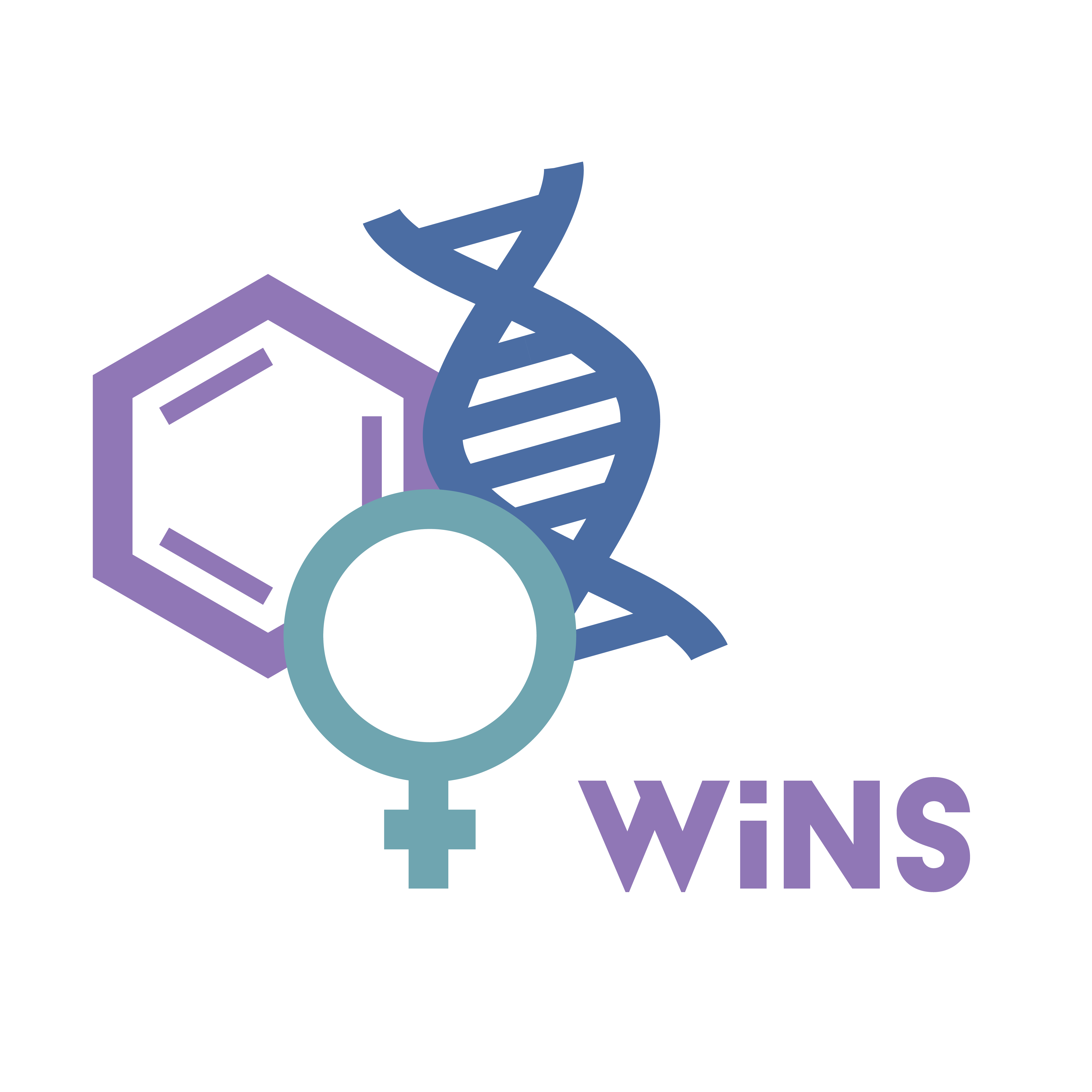SoftSocket — Innovation in Sports Prosthetics by Two Women


SoftSocket and its founders, Cara Ammann and Lisa-Marie Frühauf, are on a roll. Going from a thesis to turning the idea into an innovation that competes in the fast-paced world of startups. With their textile-based, adaptable prosthesis that can withstand high traction, Cara and Lisa hope to empower people with a limb deficiency and cement themselves in the world of sports prostheses. Soft Socket is an underarm prosthesis that enables users to do sports such as rowing, climbing, and weightlifting that normal day-to-day prosthetics cannot accommodate. We met the two founders breaking through the male-dominated startup world to listen to their journey.
What was the process of turning your Thesis into a Startup?
Cara: Starting my thesis, I would have never guessed what it turned into. But being done with a thesis and having a working prototype gives you two options: either you move on with the original plan of starting a PhD or a job and store the prototype in the ETH basement OR you screw that and do something you never had on your agenda: Working un(der)paid on your own with no clear to-do list and nobody responsible but you. That thought process took me a couple of weeks. I talked to other people who have their own startups and to others who are doing a PhD. When I finally made my decision, I felt very relieved because the worst thing is not having a plan.
Thank God I already worked as an accountant to finance my studies, so the business part was not totally new me. But business models and writing a business plan are definitely not things you learn in an engineering degree. In the first couple of weeks, I took some classes and attended some workshops about it to have a broad overview. But pretty soon, I began to realize that if I spend my time on learning all this and writing grant applications, business plans, and pitch decks, who is working on the actual product?
So, fortunately, I happened to talk to Lisa on the phone, a friend from my bachelor’s degree and my former flatmate. It was about how things are with her master’s, and right at that time, she was looking for a master’s thesis in her entrepreneurship degree. So, the idea of her joining the project was born.After Lisa did her master’s thesis on the market validation of the product, we are now working full-time on SoftSocket and have shared responsibilities and a big benefit: having someone who is forced to listen to you about any problem or curiosity that arises.
What were/are the biggest challenges your startup has faced so far?
Lisa: The biggest challenges are the regulatory approvements, like the CE-Marking for the EU market or the FDA Approval for the US. Moreover, we just successfully finished the big challenge of patent application.
Cara: I think the biggest challenge was to start. Once you find something you can be passionate about and start doing it full-time, everything else will seem easier.
What have been some of your milestones so far?
Lisa: First, both of us wrote our master theses about our project. Then, the first idea was turned into a business case. We got our first funding from Inosuisse and Venture Kick Stage 2, and since the 1st of March, we have been part of the accelerator Gateway49. At the end of 2024, we also won two pitch competitions, the SDG-Pitch at the ETH Student Project House and the national final of Red Bull Basement, which allowed us to be part of the world final as one of the Top 40 worldwide in Tokyo in December 2024.
Cara: But despite all the money and fun, we also have improved our prototype and found more people who are eager to test it with. The biggest milestone in the product development was for sure witnessing a 16-year-old being able to do his first assisted pull-up.
What is it like as two female entrepreneurs in the male-dominated startup world?
Cara: Attention-grabbing. Walking into rooms (for pitch competitions or workshops) with mostly men as two female co-founders, you already stand out without having said a single word. People might remember you because you’re the females. But it’s also a little frightening if you have a pitch and stand in front of a jury consisting of 8 males and only one other female.
We have also experienced that there is a, I know very stereotypical, different mindset in male and female founders when it comes to confidence. We have seen a lot of male-dominated pitches where numbers were definitely exaggerated and goals almost too high to ever achieve, whereas most women I’ve heard have more realistic expectations and work with lower numbers.
Since we know about that, we try to find a good balance and love to get coached by people who are aware of that. So, they are mostly female coaches : )
Lisa: In our case, it is not only the male-dominated startup world – it is also the male-dominating tech world, but it is a high motivation to work on it every day with all my heart.
What are you currently working on? What are your current challenges?
Lisa: At the moment we are working on fulfilling regulation requirements and plan on starting that big and very important part as soon as possible.
Cara: Since we develop a medical product, we have a lot of norms and standards to fulfill. And believe me, in a engineering degree, you only have a 90-minute class about it, so we’re definitely not experts yet.Also, we need to juggle product development and testing with fundraising and incorporation.
What does female empowerment in the entrepreneurial world mean to you, and how do you promote it in your startup?
Lisa: Female empowerment in the entrepreneurial world means to me that there is no difference between me/us and a male entrepreneur. We could achieve everything by working on it, and there is no “I can’t do that because I’m a woman.”. We promote it by being part of events and pitch competitions as female founders or with our decisions of whom we work with. If two people have the same level of expertise and one is a woman and one is a man, we choose the woman.
Cara: And that has worked very well in the past when it comes to coaches, mentors, or even our patent attorney. I just read a sentence from one of my former ETH professors who really inspired us, and I think we can both 100% identify with that: “We are not women in STEM. We are scientists, engineers, innovators, and leaders. Period.”
Can you share the story behind the idea for your startup? How did you identify the need or gap in the market?
Cara: At the beginning of my master’s thesis, there was one girl born without her left hand who needed a new prosthetic that fulfills her requirements: A prosthetic that is comfortable and still durable for sports like biking, climbing, or rowing. At the end of the thesis, she was hanging from a pull-up bar using the developed prototype, reporting being super comfortable. Seeing her happy sparked the idea of the ability of that prototype to enable more people.
Lisa later did a market validation study asking 100 affected people and found even more reasons why a product like that is very much needed. Available studies ask way fewer people because it is hard to find the right people to talk to, but thanks to social media, we were able to reach out to them. They for example reported not being able to finance a prosthesis because conventional ones are rather expensive and, especially in countries without health insurance, difficult to cover.
We also talked to an NGO working with children in West Africa and figured that in countries without orthopedic technicians, prostheses are literally inaccessible.
What would be your advice for people, especially women, who are thinking about founding a startup?
Lisa: If you have a dream or an idea, go out with it and talk about it with people, even with unknown people, and observe their faces and their emotions to your idea. But never be afraid. If they say it is a bad idea, do research on it and try it. There is nothing that you could lose except your time.
One of my life mottos is: Try it and then you will see what happen with your idea, because if you don’t try it, you will never know, what could happen.
Cara: Do it!
